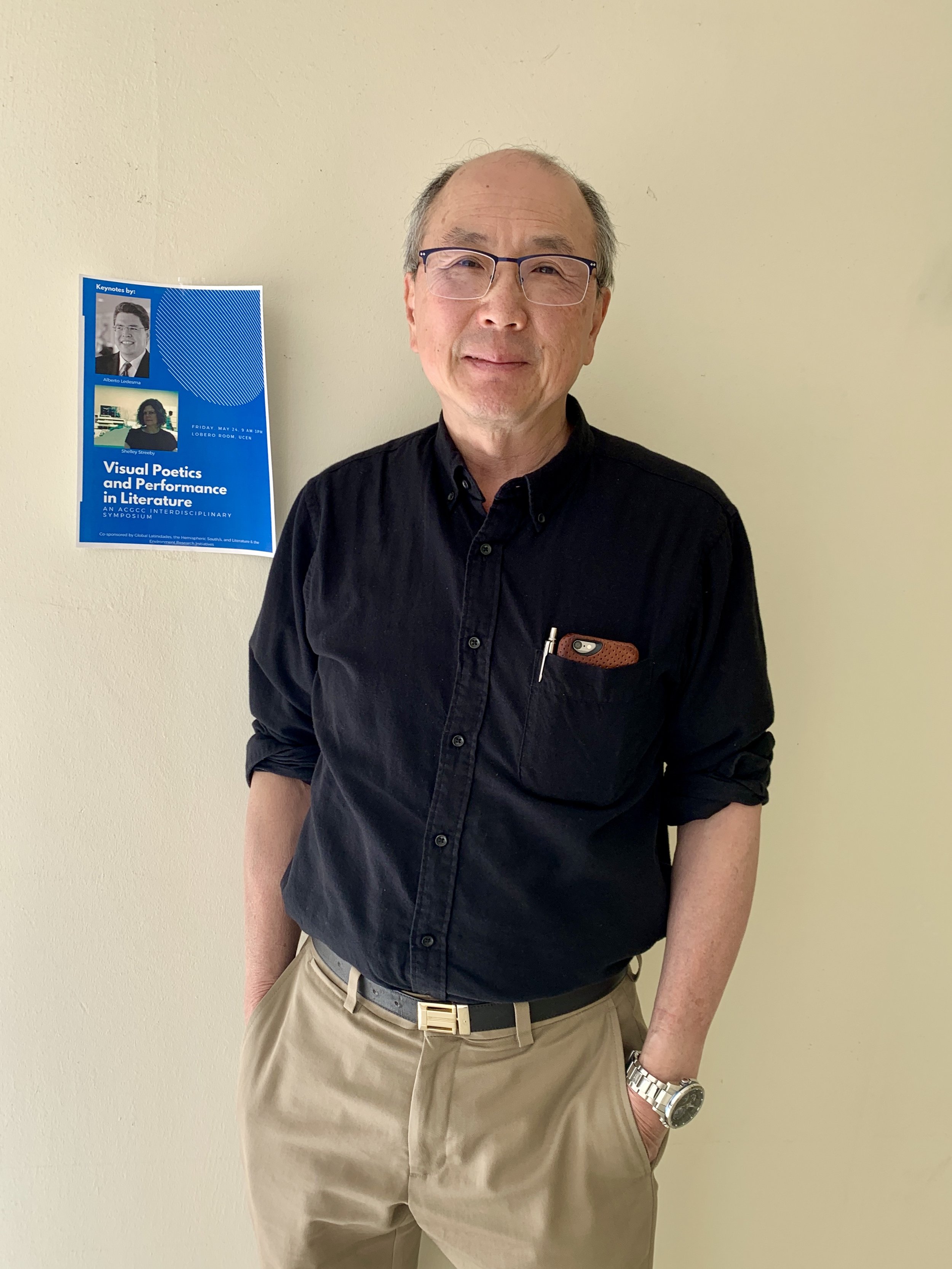By Mikayla Hillar
Alan Liu, a professor of English at UC Santa Barabara is a self-described digi-humanist. Liu is currently directing a $1.1 million humanities grant from the Mellon Foundation. The project, “WhatEvery1Says,” collects big data relating to the word ‘humanities.’ He also published a book last year with the University of Chicago Press titled “Friending the Past.”
Alan Liu’s latest book, Friending the Past.
Liu recently sat down for an interview to discuss the intersection between the humanities and our increasingly digital environment.
Q. How would you define a digi-humanist?
A. Digital is a term that is often used by people as a shorthand placeholder for all the new methods, mediums and technologies involved in information and communication and media of all different kinds. The field is kind of split in two: there is one half of the field which is called “New Media Studies” the other half is called “Digi-humanities.” The difference between the two is that “New Media Studies” comes out of media studies so there are a lot more people there who are interested in media forms, such as films, games, and so on. The digital humanities side of things tends to come out of the more traditional humanities departments – literature, philosophy, languages and so on – and for that reason they have been oriented more around the historical materials of those fields. Primarily texts of different kinds.
Q. What is your response to the widespread misconception that the humanities is not an important or profitable sector of academia?
A. When we were in the Great Recession some years ago and the University of California was going through a rethinking exercise because it was in financial trouble, I worked on some research teams with scientists to explore the UC’s future and the strange thing is that scientists had the same exact concern about science. They saw all these politicians and parents and others saying things like ‘science is useless.’ Not science as in applied engineering, but basic research. All the politicians made fun of funded studies that studied the sex lives of cockroaches or something like that, but of course from the scientist’s perspective if you don’t do the basic research you don’t have a foundation for tomorrow’s great discoveries and tomorrow’s applications.
People go on to have good careers in the humanities and make a fair amount of money. A common measurement is the beginning salary of an English major compared to the beginning salary of whatever other career. It appears that the more meaningful metric is what the mid-career salary is, which rises faster for a humanities major than for many other majors. And another key metric is the end state of the happiness metric, self- reported satisfaction in one's job. So, there are lots of ways to measure the worth, as it were, of the humanities -- not all of which are being accommodated, in a narrow short-sighted, what-is-your-first-paycheck, kind of way.
Q. What do you think the humanities have to offer society to combat the current problem with “fake news” and a low regard for the truth?
A. Well from the university’s perspective, what the institution of the academy has to offer society at large about this vexing problem of our time is that the problem has historical antecedents as well. Going all the way back, for example, to the equivalent of fake news in the time of the French Revolution. They called that gossip. Gossip in the French revolution killed people. You know that neighbor down the street? He’s a secret sympathizer with the aristocrats, off with his head, right? They had fake news back then.
Alan Liu a professor of English at UC Santa Barbara is currently working on WhatEvery1Says, a project that collects big data on the public discourse of humanities.
What does the institution or the academy have to offer society that is a unique contribution? It has an interdisciplinary way of approaching the problem. That means it has scientific ways of assessing what objective or factual truth is and what the standards for that are. For example, how many people have to agree and what kind of measures of internal consistency truth has to have.
It has social science ways of answering the question: What are the ways in which fake news gets started? What are the ways in which people come to a consensus about what a valid truth is? What are social mechanisms that make for a more robust communication channel for fake news, not the spread?
And finally, it has humanities and arts ways of approaching the issue as well: What does truth mean interpretively for a group of people? What are the standards for that philosophically, epistemologically, analogically, ontologically and otherwise? What is the relationship between truth and fiction?
That’s a third category that we often do not hear about in discussions about fake news and dishonesty. We always have these third department kind of categories that are neither truth nor untruth. We call them things like ‘fiction’ and ‘allegory’ and ‘metaphor,’ which serve a larger truth. I think those are the unique contributions of the academy that can be brought forward to society in an interdisciplinary way.
Mikayla Hillar is a fourth year English major at UC Santa Barbara.



